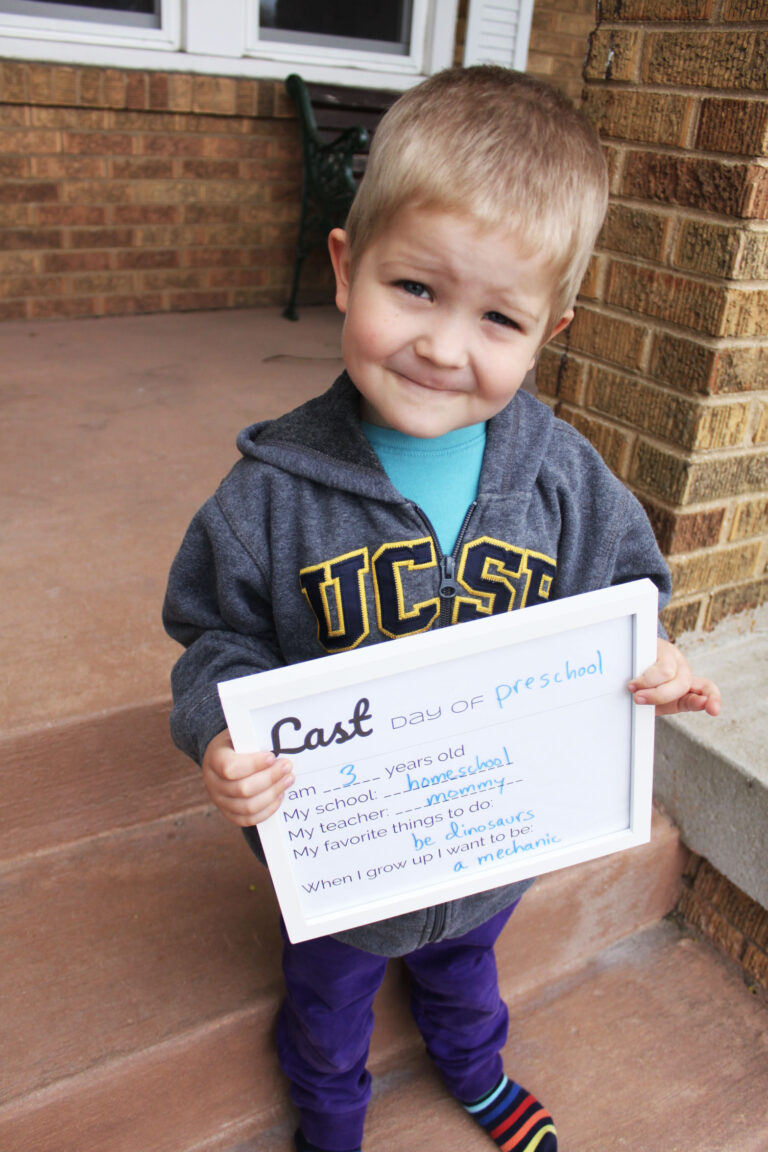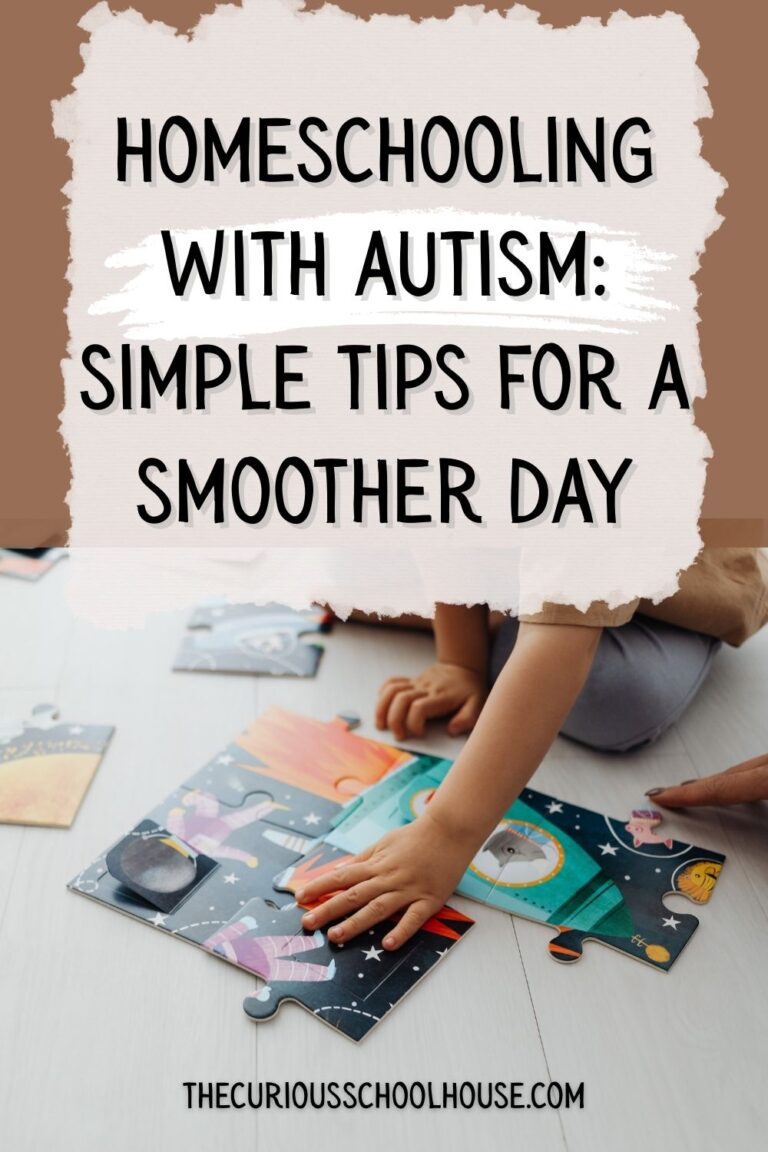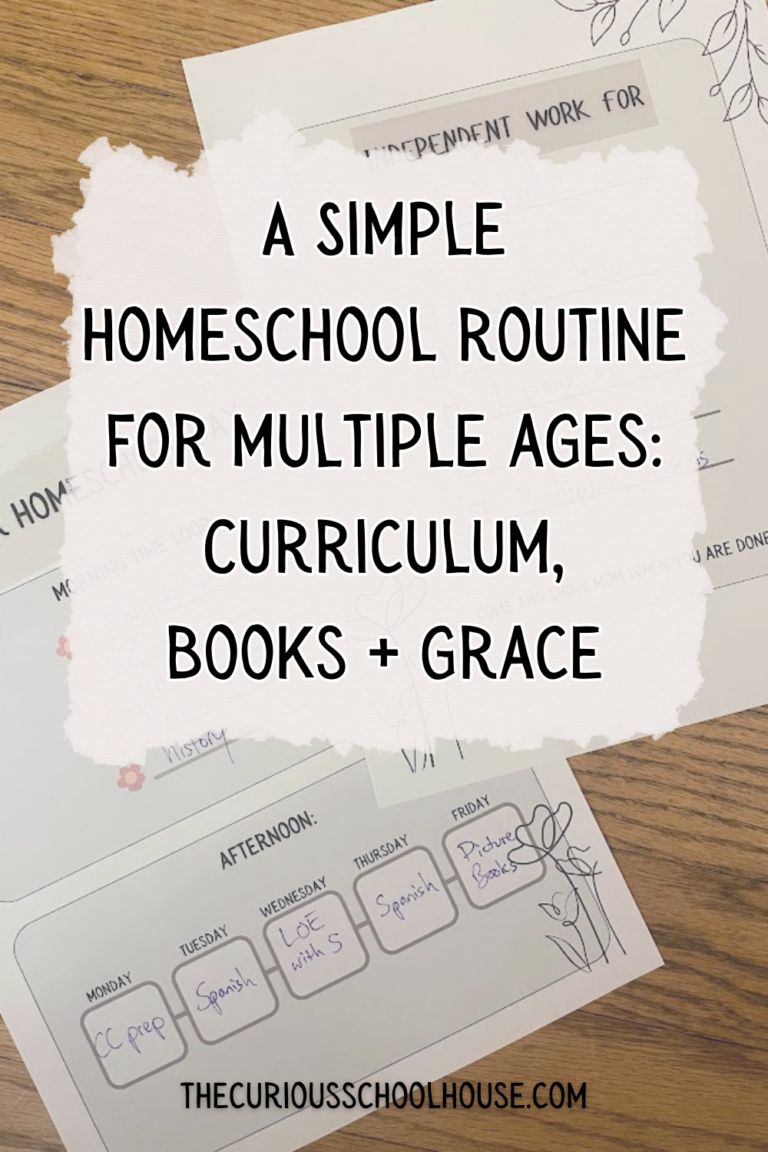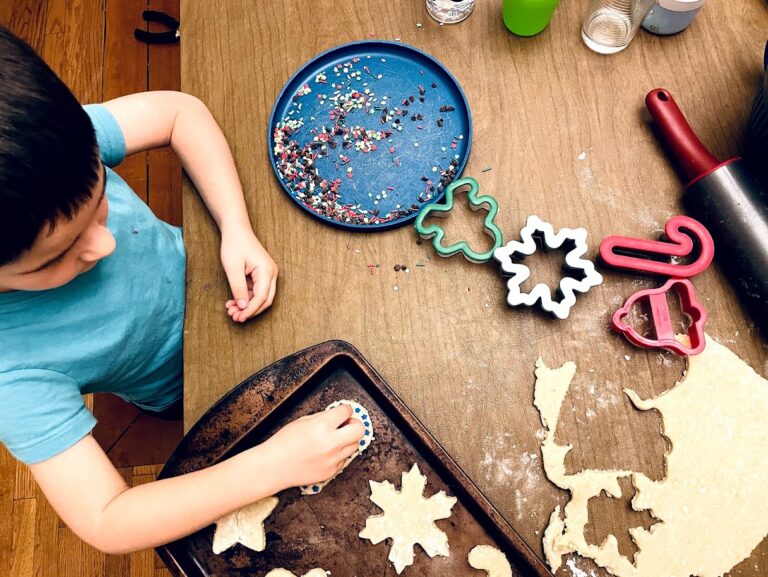7 Top Reasons to Homeschool Without Tests (Or Even Grades!)
This post shares seven reasons to homeschool without tests or grades, and why we choose to do so. Reasons why tests are unnecessary and can even be a hindrance to your education!
I recently noticed that the various books and curriculum we’ve chosen do not include tests. Our math program will have an occasional “review test,” but we work through it slowly as a review “lesson” rather than a timed or graded test. If a child doesn’t remember a concept or struggles with a concept, we go back and practice it.
Other than that, our children have never taken a test nor received a “grade,” and I’ve realized that we enjoy and appreciate this style of education. Have you wondered if there might be good reasons to homeschool without tests? Read on to see why we’ve kept our children away from such things.
Actually, Big Brother spent one year in the 4K program at our local public school, so he may have had a test there. I don’t really know, but I hope not. Preschoolers have no business being tested or graded – in fact, I would argue that test are unnecessary for almost all children. There are better ways of finding out what a child knows, and tests do nothing at all to help their education.
Read on to see my reasons to homeschool without tests, and if you disagree, leave me a comment – I’d love to hear why!

Reasons to Homeschool Without Tests: Why We Don’t Test Or Give Grades
1. It takes away time and energy that could be spent on better things. This is more true in public schools, I believe. I have heard teachers complain about the amount of time they have to spend teaching “to the test” and reviewing for the test, because of the great importance placed on test scores which then affect school funding, which then affect salaries and resources, and on and on it goes.
However, this is also true to a lesser extent in our homeschool. I don’t want to spend a lot of time reviewing for a test, and administering a test, and grading a test – when our time would be much better spent reviewing skills or concepts, or practicing what we have learned, or learning something new.
2. Tests tell you very little about a person. And lest you think I am writing this out of latent bitterness regarding my personal past struggles with testing and grades, let me just say that it has taken some time for me to come to these conclusions because I did so well with testing in high school and college. I scored a 35 on my high school ACT, a bad college grade for me was an A minus, and I rather enjoyed the whole process of taking tests.
However, all that this tells you about me is that I have one particular skill set: I am good at taking tests. It doesn’t predict how much money I would end up making, or what sort of job I would have, or how happy/satisfied/fulfilled my life would be, or what my personal character is, or if I have learned to love learning, or if I am a good parent, or if I have positive relationships with my family. It doesn’t even tell you that I actually mastered the material on those tests!
To be perfectly honest, I was also good at cramming. If you asked me to recall any of that test material now, I am certain that 90% of it would be gone. Is this real education? Did I actually learn anything from those years?
Yes, I did, but what I learned best could not be tested, and that which was tested wasn’t learned well.
My high school biology teacher had a contagious love for local trees and pond life, and though I don’t remember what her tests covered, I still can picture the trees we identified outside the school together. I had a fabulous teacher in grad school who taught me to love research (something I never knew was possible) – but that didn’t come up on any test. My piano skills grew and I learned to listen to subtleties in music that I had never heard before – but how can you measure that with a grade?
3. They can cause unnecessary stress and anxiety. As I shared above, I did not usually have anxiety about test taking because I viewed it as a fun challenge, but I know this is not true for everyone. Everyone has their own talents and weaknesses, and some people (who probably actually know the material much better than I ever did) really struggle with testing.
I don’t know if you have noticed this in your own personal life, but I learn and absorb new information best when I am relaxed and comfortable – not when I am afraid or anxious. Children are as we are, only more so; and the more we can keep their education free of worry and stress, the better for them – and for us.
4. I can find out what my children know in other ways. We can narrate, as Charlotte Mason recommends. I can talk to them, ask questions, have them to draw me a picture of what they know, have them show me with their hands, let them write their math equations with chalk on the driveway, or act out the history story that we just read. We could recreate a scene with Legos or with playdough, or we could narrate our geography facts to Daddy or Grandma.
Any of these options (and many more!) will show me what my children remember, and will also help to solidify their knowledge in their own minds much better than a test would – because they are putting their own individual stamp on it, whether it be through their own drawing or their own choice of words. This requires more thinking and more understanding than simply choosing the correct multiple choice answer.
5. Grades are irrelevant in adult life. I feel like this is a well-kept secret from those poor young people! High school grades and ACT/SAT scores felt so, so important during those last high school years. But what did my precious 35 actually do for me? It did help to secure a very generous scholarship for my undergrad college time, which I don’t deny was a big deal and saved me from school debt.
However, even once I got to grad school, a mere four years later, it felt irrelevant. All that grad school admissions wanted to see in order to admit me was that I had completed my undergrad degree with some level of competence and that my previous teachers didn’t hate me. And now – when college days are long gone? My high school grades mean literally nothing.
Not to say that my education was meaningless, or that I regret the years I spent there (it wasn’t, and I don’t) – but the numbers they assigned to me at regular intervals along the way have quickly faded into insignificance. Can you imagine asking new friends that you meet, or your dentist, or even the president of this entire country what their ACT score was?
It just doesn’t matter.
6. You could *probably* even get into college without taking a test. Gasp! I know it sounds crazy, but if you think about the fact that colleges are first and foremost businesses who desperately need students in order to make money and survive, and remember that US birth rates are steadily declining (which means fewer young people to choose from), it’s not unlikely that a well-educated teen could easily be admitted without a single grade or test score to his or her name.
I haven’t tried it myself, but if you successfully do so, please let me know and I will shake your hand vigorously and buy you a coffee.
7. I want our children to love learning for it’s own sake rather than being externally motivated by comparison with others. Getting good grades in school is nice but it’s entirely possible to do so without caring about what you are learning, or seeing real-life application to your knowledge, or having your curiosity sparked in a way that causes you to become a life-long learner. Let’s not distract our children from their education by their grades!
Education is neither a race nor a competition, and while I care deeply that my children keep learning and growing in all areas, I don’t want them comparing themselves to others and then struggling with pride or discouragement as a result. We each keep learning at our own pace (Mom included!) and we keep practicing and we celebrate our progress and that is enough.
THAT IS ENOUGH.
Big Brother learned to read at four, and it was very good. Middle Brother learned to read at six, and it was very good. Little Brother is on track to be even later, and guess what? It’s still very good, and we will celebrate his progress as he approaches that milestone, and he will be rightfully proud of himself when he finally reaches it.

Two Caveats
If our state required it, I would have no problem doing yearly testing in order to keep homeschooling. To me, it’s a small price to pay for the freedom to homeschool, and I would not have a problem with jumping through a few more hoops in order to keep this freedom. Wisconsin is currently remarkably loose with its homeschooling requirements, but that could change in the future – and if so, we will happily comply.
Test-taking is a skill that can be learned and improved, and I don’t want our children to be hindered by not having that skill. When they get older we will practice and learn about this skill, so that if/when they need to take a test – to get into college, or to get scholarship money, or to advance their career, or whatever – they will know how to do it. Despite all the reasons I listed above, I know that tests can open doors of opportunity in our society and I want our children to know how to use them if needed.
There you have it: our reasons to homeschool without tests or grades! I love the fact that our kids have never known the pressure of “getting good grades,” and while we are always open to changing our ways if needed, right now it is working so well.
“It seems to me that education which appeals to the desire for… marks, prizes, scholarships, or the like… or to any other of the natural desires, except that for knowledge, destroys the balance of character; and, what is even more fatal, destroys by inanition that desire for and delight in knowledge which is meant for our joy and enrichment through the whole of life.” ~ Charlotte Mason
Originally written June 15 2021







